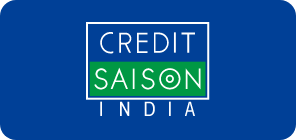You can now apply for a business loan of up to ₹50 Lakhs on Bajaj Markets, where you can compare offers from multiple lenders. Enjoy competitive interest rates starting from 9.75% p.a. with convenient repayment tenures of up to 72 months.
Easy-to-meet eligibility criteria, minimum documentation, and hassle-free approval are some of the unique benefits you get to enjoy. Don't be left wondering what could have been – make the smart move today and secure your financial future with Bajaj Markets.
Compare Business Loans
|
Our Partners
|
Minimum Interest Rate
|
Maximum Loan Amount
|
Maximum Loan Tenure
|
|
|---|---|---|---|---|
|
Ambit Finvest |
20% p.a. |
₹50 Lakhs |
36 months |
|
|
AYE Finance |
28% p.a. |
₹2 Lakhs |
36 months |
|
|
Bajaj Finance Limited |
9.75% p.a. |
₹30 Lakhs |
72 months |
|
|
FlexiLoans |
12% p.a. |
₹50 Lakhs |
36 months |
|
|
IIFL Finance |
18% p.a. |
₹30 Lakhs |
60 months |
|
|
InCred |
20% p.a. |
₹3 Lakhs |
48 months |
|
|
Indifi |
16% p.a. |
₹50 Lakhs |
36 months |
|
|
KreditBee |
18% p.a. |
₹4 Lakhs |
9 months |
|
|
Lendingkart Finance Limited |
12% p.a. |
₹35 Lakhs |
36 months |
|
|
Protium Finance Limited |
1.25% p.m. |
₹50 Lakhs |
72 months |
|

Credit Saison |
22% p.a. |
₹10 Lakhs |
3 Years |
|
Disclaimer: The details mentioned above are subject to change at the lender’s discretion.
Features and Benefits
High Loan Amount
Quick Approvals
Zero Collateral
Competitive Interest Rates
How to Apply for a Business Loan on Bajaj Markets
Getting a business loan online on Bajaj Markets is now really simple. Just follow these steps:
-
Step 1
Click on the ‘Apply Now’ button on this page
-
Step 2
Enter your basic personal details on the online application form
-
Step 3
Enter the loan amount and preferred repayment tenure
-
Step 4
Submit the form for verification
Quick Approval
Applying digitally enables you to get approval on your business loan application within 2 minutes.
Instant Disbursal
On meeting the eligibility criteria and receiving approval, you may receive the sanctioned amount within minutes.
Minimal Paperwork
Uploading the paperwork online is easy, making the documentation process smoother and faster.
FAQs and Support
What is a business loan and how does it work?
A business loan involves borrowing capital that you can use to support an existing or a new business. You can use the borrowed funds to increase employee headcount, expand the enterprise, purchase equipment, build working capital, and more.
What credit score is needed to get a business loan?
To get a business loan, you must have a credit score of at least 685. The higher your score, the better your chances of getting a business loan at negotiable rates.
What is the maximum tenure for a business loan?
On Bajaj Markets, you can get a business loan for a maximum tenure of 72 months.
Can I get a business loan without any collateral?
Yes, a business loan is usually unsecured. This essentially means that you can acquire the funds without having to pledge an asset as security.
What is the minimum turnover requirement for a business loan?
The minimum turnover required to qualify for a business loan can vary based on the criteria set by different lenders. Typically, it can range from around ₹10 Lakhs to around ₹40 Lakhs or so.
Which entities can avail of a business loan?
Any entity engaged in a legal business in India can avail a business loan if it qualifies for one, depending on the eligibility criteria in place. This includes entities like partnership firms, private companies, public companies, as well as government-owned subsidiary companies.
What is the minimum and maximum loan limit offered for a business loan?
The minimum and maximum limits on business loans vary from one lender to another. The minimum amount you can borrow may be around ₹1 Lakh. On the other hand, the maximum amount can be as high as ₹50 Lakhs.
What is the typical interest rate for business loans in India?
The business loan interest rate you get differs from lender to lender and is affected by the lender’s internal policy and benchmark rate. It is also based on your eligibility. On Bajaj Markets, you can get a business loan starting at 9.75% interest p.a.
Enter Your OTP


















